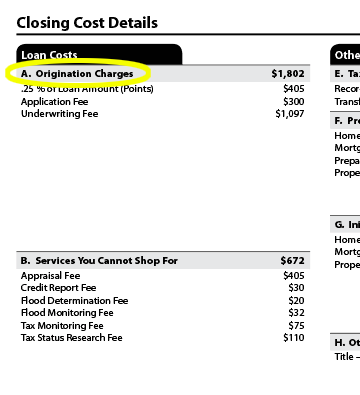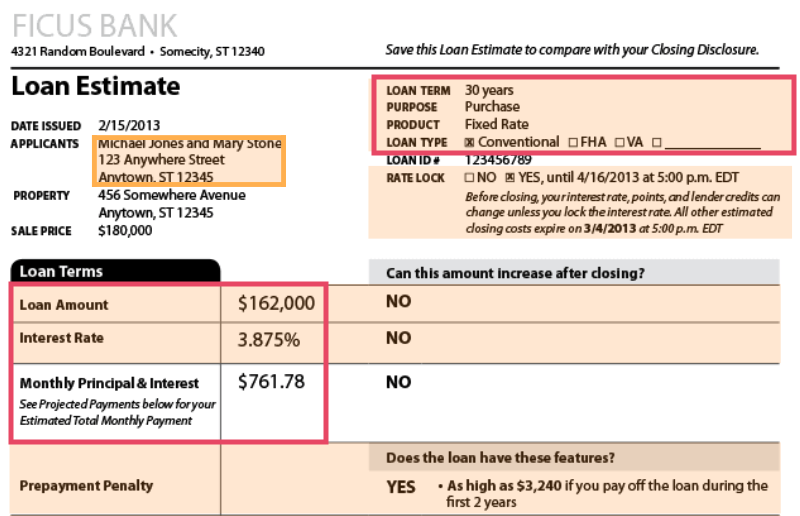Why Do Banks Sell Mortgages To Other Banks Things To Know Before You Get This
The reverse mortgage balance can be repaid at any time without charge. You can choose to either pay back the loan voluntarily or postpone interest until you later on offer your home. When the loan balance will be paid completely any remaining equity will come from your heirs or estate. Yes. A foreclosure is a legal process where the owner of your reverse mortgage obtains ownership of your home. Even if you've received a foreclosure notification, you may still have the ability to prevent foreclosure by pursuing one of the choices noted above. Your reverse home mortgage business (likewise referred to as your "servicer") will ask you to license on a yearly basis that you are living in the home and maintaining the property.
However, these expenses are your obligation so make certain you have actually reserved adequate money to spend for them and ensure to pay them on time. Not meeting the conditions of your reverse home loan may put your loan in default. This suggests the home mortgage business can require the reverse mortgage balance be paid completely and may foreclose and offer the residential or commercial property.
Nevertheless, if you move or sell the home, the loan ends up being due and need to be settled. In addition, when the last enduring debtor dies, the loan ends up being due and payable. Yes. Your estate or designated heirs might maintain the residential or commercial property and http://raymondkoba970.almoheet-travel.com/h1-style-clear-both-id-content-section-0-8-simple-techniques-for-when-did-30-year-mortgages-start-h1 satisfy the reverse mortgage financial obligation by paying the lesser of the home mortgage balance or 95% of the then-current appraised value of the house.
No debt is passed along to the estate or your successors. Yes, if you have supplied your servicer with a signed third-party permission document authorizing them to do sell timeshare with no upfront fees so. No, reverse mortgages do not allow co-borrowers to be included after origination. Your reverse mortgage servicer might have resources readily available to help you.

Your counselor will assist you examine your financial situation and deal with your home loan servicer. In addition, your therapist will be able to refer you to other resources that may help you in balancing your budget and retaining your house. Ask your reverse home mortgage servicer to put you in touch with a HUD-approved therapy company if you have an interest in speaking to a real estate counselor.
Some Ideas on What Is The Current Interest Rate For Home Mortgages You Need To Know
Department of Housing and Urban Development (HUD) Office of the Inspector General Hotline 800-347-3735 or e-mail: [email protected] Federal Real Estate Financing Agency Workplace of the Inspector General Hotline 800-793-7724 or on the Internet at: www.fhfaoig.gov/ReportFraud Even if you are in default, options may still be readily available. As a very first step, call your reverse mortgage servicer (the company servicing your reverse home mortgage) and describe your circumstance.
You can likewise get in touch with a HUD-approved therapy agency for additional information about your scenario and choices to help you prevent foreclosure. Ask your reverse home loan servicer to put you in touch with a HUD-approved counseling firm if you're interested in speaking to a housing therapist. It still might not be too late.
If you can't pay off the reverse home loan balance, you may be eligible for a Short Sale or Deed-in-Lieu of Foreclosure (what is the interest rates on mortgages).
A reverse home loan is a home loan, generally protected by a home, that makes it possible for the debtor to access the unencumbered worth of the residential or commercial property. The loans are generally promoted to older property owners and generally do not require regular monthly home mortgage payments. Customers are still responsible for real estate tax and property owner's insurance coverage.
Since there are no required home loan payments on a reverse home loan, the interest is included to the loan balance every month. The rising loan balance can ultimately grow to exceed the worth of the home, particularly in times of declining house worths or if the borrower continues to live in the house for numerous years.
10 Simple Techniques For How To Calculate Interest Only Mortgages
In the United States, the FHA-insured HECM (house equity conversion mortgage) aka reverse home loan, is a non-recourse loan. In simple terms, the customers are not accountable to pay back any loan balance that surpasses the net-sales earnings of their house. For instance, if the last borrower left the house and the loan balance on their FHA-insured reverse home loan was $125,000, and the home sold for $100,000, neither the customer nor their successors would be accountable for the $25,000 on the reverse mortgage that surpassed the worth of their home.
A reverse mortgage can not go upside down. The expense of the FHA home loan insurance is a one-time fee of 2% of the evaluated worth of the home, and then an annual cost of 0.5% of the exceptional loan balance. Particular rules for reverse home mortgage deals differ depending upon the laws of the jurisdiction.
Some economic experts argue that reverse home loans may benefit the senior by smoothing out their earnings and consumption patterns gradually. Nevertheless, regulative authorities, such as the Customer Financial Defense Bureau, argue that reverse mortgages are "intricate products and difficult for customers to understand", specifically in light of "deceptive marketing", low-quality counseling, and "danger of fraud and other frauds".
In Canada, the debtor should look for independent legal suggestions prior to being approved for a reverse home mortgage. In 2014, a "relatively high number" of the U.S. reverse mortgage borrowers Get more info about 12% defaulted on "their real estate tax or house owners insurance". In the United States, reverse home loan borrowers can deal with foreclosure if they do not preserve their homes or maintain to date on house owner's insurance and real estate tax.
Under the Accountable Loaning Laws the National Customer Credit Protection Act was changed in 2012 to incorporate a high level of guideline for reverse mortgage. Reverse mortgages are also controlled by the Australian Securities and Investments Commission (ASIC) needing high compliance and disclosure from lending institutions and consultants to all debtors.

The Best Guide To Why Are Reverse Mortgages A Bad Idea
Anyone who wishes to engage in credit activities (including loan providers, lessors and brokers) should be licensed with ASIC or be an agent of someone who is licensed (that is, they should either have their own licence or come under the umbrella of another licensee as an authorised credit agent or employee) (ASIC) Eligibility requirements vary by loan provider.
Reverse home loans in Australia can be as high as 50% of the home's value. The exact amount of money readily available (loan size) is figured out by numerous aspects: the customer's age, with a greater amount readily available at a greater age current interest rates the property's location program minimum and optimum; for instance, the loan may be constrained to a minimum of $10,000 and a maximum of in between $250,000 and $1,000,000 depending on the lending institution.
These costs are regularly rolled into the loan itself and therefore substance with the principal. Normal costs for the reverse home loan include: an application fee (establishment charge) = in between $0 and $950 stamp duty, home mortgage registration costs, and other federal government charges = vary with place The interest rate on the reverse home mortgage varies.
